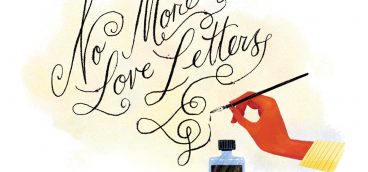Letter from Philadelphia

Having moved across the state from Pittsburgh in 1986, I now wonder what prompts me to read each edition of the Pittsburgh Quarterly from cover to cover. Sure, I subscribe to other magazines. The New Yorker is often hit or miss. My location notwithstanding, I can’t relate to “The Main Line Times.” Reading “Philadelphia Magazine’ is akin to my attending a glitzy cocktail party that I was not invited to.
So what is my attraction to Pittsburgh Quarterly? I think that Samuel Hazo said it all with the title of his book: “The Pittsburgh That Stays Within You.”
I was struck reading your Q&A of attorney Art Stroyd : “The Art of Compromise.” As older lawyers, we are undoubtedly a study in contrasts in what we do and how we do it. When I was graduating from Pitt Law School in 1979, I remember being lectured by Leland Hazard, the founder of public television and former PPG legal counsel, that Stroyd’s firm, Reed Smith, was the only place to go. However, I was instead attracted to the practice of Sidney M. Ruffin, Esquire, the very colorful and ingenious legal architect of Pittsburgh’s First Renaissance.
In the early 1980s, with no clients to speak of, I started my own practice. Both then and now, I’ve likened it to a high wire act, where I’d eventually fall off and fail.
Your interview of Mr. Stroyd brought to mind the fact that I felt certain Pittsburghers would be there when I failed; men like Walter McGough, the head of Reed Smith’s litigation group, a man whom both Stroyd and I considered a mentor. He was also the father of my Shady Side Academy classmate, Tom McGough. In the late sixties, I remember both father and son sporting crew cuts, notwithstanding the political and personal upheaval. I remember first meeting Tom’s father in the football stands while he urged his son, then on the field, to hit harder and crush the opponent. Tom’s small size made me fear for his physical safety.
Years later, I would visit Tom when he was working for Reed Smith and say hello to his father. He again struck me as very much a commanding presence, working not from a desk, but rather directing litigation strategy from a decidedly ordinary, beat-up brown leather lounge chair. His client base consisted of Pittsburgh’s most elite corporations and wealthy families. Yet, I came to learn that he came from much humbler and poorer Irish stock, beginning his career in Reed Smith’s mail room, without degrees of any sort. They would come later.
One matter years ago found me and Walter McGough on opposite sides. I had a client with a not very large monetary judgment against Sharon Steel Corporation. I was trying to collect. One day I received a telephone call, opening with his signature gravely, yet domineering, voice:
“Mark …..Walter McGough here.”
Taken aback… I wondered what was coming:
“ Yes sir what can I do for you ?”
“Well, it appears that you are trying to collect on a judgment against my client, Sharon Steel.”
“Yes sir, that is correct. ”
“Well how would you like a situation where you threw Sharon Steel into bankruptcy?”
With customary irreverence I replied :
“ Now that might be interesting!”
His terse reply was:“ Wrong answer…… Mark, let’s try this again.” We then got the matter settled.
Your recent Pittsburgh Quarterly interview and the mention of Mr. McGough brought me back 40 plus years to that call. Why? Perhaps It was that Mr. McGough treated and respected me as a professional and a peer. However, by no means was I a peer. It was and remains something more. Rather, Walter McGough was symptomatic of a Pittsburgh community, which I felt was supportive of me, regardless of what side I was on, or what I was doing. I felt that I could count on that community to catch and lift me up when I would fall off that high wire.
That sense of community is what connects me to the Pittsburgh Quarterly and Pittsburgh, in Sam Hazo’s words, my previous, but perhaps permanent home.
So, please keep up the great work of lifting up Pittsburgh and the great people who live there!










